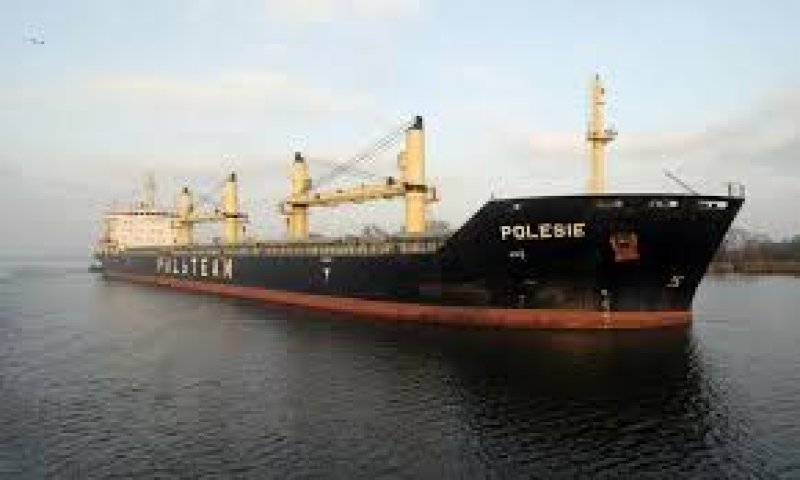- Protecting health demands no money: Bangladeshi expert |
- EU Deploys 56 Long-Term Observers Across Bangladesh |
- Appeals over nomination papers:18 more regain candidacies back |
- More than 100 dead in torrential rains and floods across southern Africa |
- Islami Andolan to Contest Election Alone in 13th Poll |
Greek ship hit by missile in Red Sea - reports

A Malta-flagged, Greek-owned vessel has been hit with a missile in the Red Sea off the coast of Yemen, maritime security firm Ambrey has said.
It is thought to be the third incident involving the bulk carrier, believed to be named Zografia, in 24 hours.
Tuesday's incident comes as the US military announced it had seized Iranian-supplied weapons bound for the Houthis during an operation last week.
Meanwhile, the US has hit more targets in Houthi-controlled areas of Yemen.
An official told CBS, the BBC's American partner, that the US conducted further strikes on Houthi positions overnight.
The US and UK launched a wave of airstrikes against dozens of Houthi targets on 11 January following attacks by the Iran-backed group on shipping in the Red Sea.
It is not yet known what was attacked in the latest US operation.
The Houthis have vowed to retaliate.
On Sunday, the US said it had shot down a missile fired towards one of its warships from a Houthi area of Yemen.
A day later, the group said they had carried out a ballistic missile strike on a US-owned cargo ship in the Gulf of Aden.
While it has not yet been confirmed that Tuesday's attack on the Greek-owned vessel was carried out by the Houthis, it appears to follow a similar pattern of strikes.
Several vessels have been targeted by the movement's fighters since November in protest at Israel's war with Hamas.
The Houthis say they are targeting vessels which are Israeli-owned, flagged or operated, or are heading to Israeli ports. However, many have no connections with Israel.
The Zografia, which was empty, was sailing from Vietnam to Israel with 24 crew onboard when it was struck on Tuesday, Greek shipping ministry sources have told the media.
No injuries were reported, only minor damage to the carrier.
The Red Sea connects the Indian Ocean to the Mediterranean via the Suez Canal but several shipping lines have announced they are now diverting round the Cape of Good Hope to reach Europe instead.
British oil giant Shell on Tuesday became the latest to suspend all of its shipments through the Red Sea indefinitely, according to the Wall Street Journal.
The US said on Tuesday that analysis of the weapons it seized from a ship near the Yemen coast suggested the Houthis had been using the same kind of weapons in their Red Sea attacks.
The seizure took place on 11 January near the coast of Somalia - the same day as the first US-UK airstrikes.
Cruise and ballistic missile components were among the items found on a ship, as well as parts for air defence equipment.
"This is the first seizure of lethal, Iranian-supplied advanced conventional weapons (ACW) to the Houthis since the beginning of Houthi attacks against merchant ships in November 2023," US Central Command said in a statement.
The ship - a traditional vessel known as a dhow - was considered unsafe and sunk by the US. Legal responsibility for the 14 crew members is being determined.
Central Command also said a search is continuing for two Navy Seals who were lost overboard during the operation.
According to media reports, one officer was knocked off the ship by high waves and the second jumped in afterwards to try and help as is required by protocol.
Washington has blamed Iran for being behind the Houthi missile capability, which Tehran denies. Iran's foreign minister, Hossein Amir-Abdollahian, said in a press conference on Monday that the West must stop the war against Yemen immediately.
In a separate development, the Greek ambassador to Iran is reported to have issued a formal appeal to Tehran to release one of its citizens - the captain of an oil tanker that was seized last week, reports BBC.
Armed men wearing masks boarded the vessel St Nikolas, close to the port of Sohar in Oman, on Thursday and ordered it to sail to an Iranian port.
Tehran said the seizure was in retaliation for the ship and oil it had aboard being confiscated by the US last year.
The vessel's owner, Empire Navigation, said on Sunday that it had been told by Iran that all of the tanker's 19 crew were safe and in good health.

